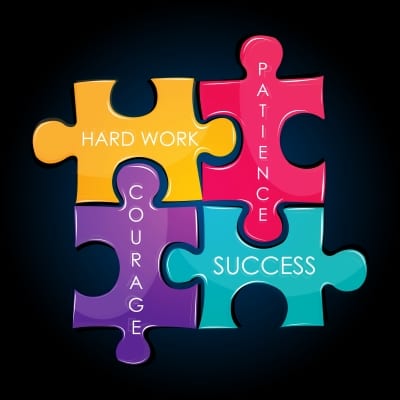Writing a great professional CV is not easy, even for experienced CV writers. For example, there’s a fine line between language that is recognisably professional and language that has begun the descent into cliché. Many of the phrases below started life as the latest concept thought up by MBA professors, or industry ‘thought leaders’, to use a term that is also often over used. To make matters even more complicated, good CVs contain lots of keywords, typically a collection of hard skills, soft skills, industry jargon and, of course, clichés.
So which to keep in, and which to keep out? Sometimes it’s easier just to show what not to do; avoid the hackneyed boilerplate and try to use natural, conversational language that shows what you’ve actually done, rather than boasting about what you’re capable of. Here’s a collection of the worst offenders:
Results-oriented professional is the ultimate in meaningless phrases, although actually its close cousin isn’t far off; ‘solution-focused’. Everyone who works is a professional who is trying to achieve results.
Curriculum Vitae is probably the most common and pointless CV cliché of all. It’s a waste of valuable white space, too. Unless you’ve decided to go with an inadvisably unrecognisable CV style, it will be obvious to anyone that your CV is a CV, and no one is going to need help in order to work that out.
Reading and socialising add absolutely nothing to the document. If you include a personal interests section, it really needs to make an impact. Reading and socialising are things everybody does, so you need to include interests that highlight some of your characteristics. If you’ve won a bronze medal in the Olympics, then great, that will show you are committed and driven, but there’s no point in describing a generic activity and hoping it’s going to win you any brownie points.
Excellent communication skills is a classic example that fails the ‘show don’t tell’ principle. Yes, you need to demonstrate you have good communication skills, but this needs to be done through specific illustration or it becomes an empty phrase with no meaning.
Strong work ethic is yet another ‘please believe my boast’ phrase that adds nothing of value. Describing an achievement or success story that references commitment is a great idea. Telling a recruiter that you’re dedicated, committed, highly motivated, etc without evidence is not.
Exceeded expectations is an archaic term left over from a 70s management training manual. It doesn’t add anything at all. If you met your goals, tell a story instead that illustrates how you did it, and what the outcome was.
Proven track record of success isn’t great either; how do you measure success? Instead drill down into what you have done well and then describe that in tangible ways.
Can work individually or in teams; there are some recruitment people out there who will tell you this one is OK, because employers want to see evidence of autonomy, or proactivity, or teamwork, or whatever. They’re wrong; it’s not OK. You can work into your achievements that you had sole responsibility for a project, or were an integral part of a successful team, but you do need to be more specific than simply stating you can work individually or in teams.
References available upon request; if you are successful and offered a post, you will be asked to provide details of referees. No need to take up space on your CV saying so.
You may find it more straightforward to write your CV once you focus on your achievements, rather than being tied to these unnecessary phrases. And if not, City CV is always on hand to help.
Image courtesy of digitalart at www.freedigitalphotos.net/

